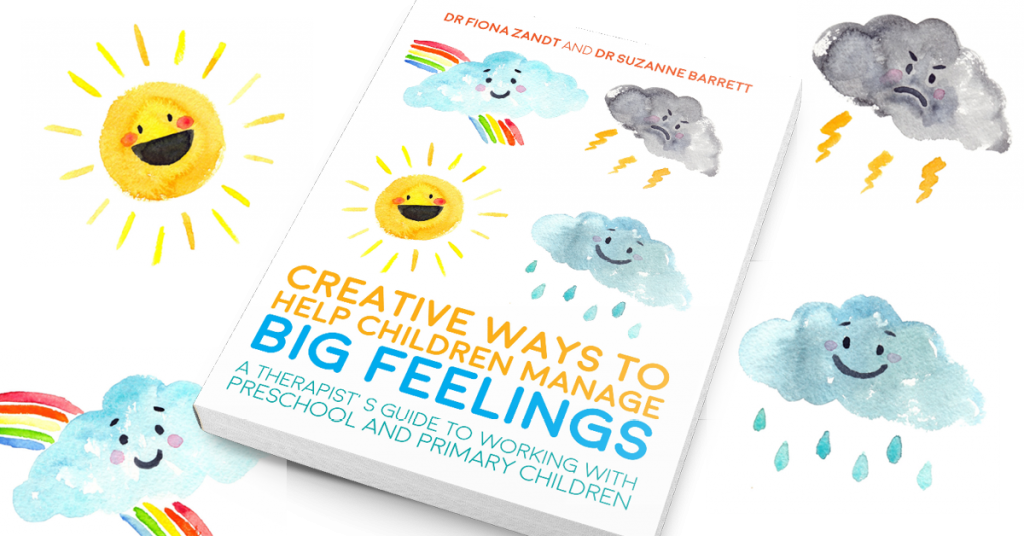Help children to stay on top of “big” feelings like anger, sadness and anxiety with this ingeniously easy-to-use therapy toolkit, Creative Ways to Help Children Manage BIG Feelings. Focusing on making therapy for children both purposeful and playful, the book provides 47 activities to transform your sessions using everyday materials and a variety of tried-and-tested therapy models. We have provided four downloadable examples of these activities below for you to try.
Body mapping is a child-friendly psychoeducation activity, commonly used in assisting children to better recognize and understand anxiety or anger.
Click here for an activity on Body Mapping
Mistake Jars – Many children worry about making mistakes and often avoid tasks that are difficult for them as a result. This activity provides an experiential and concrete way of understanding the role of mistakes in learning and helps normalize mistakes, with the aim of reducing a child’s anxiety about this.
Click here for the Mistake Jar activity
In families, when one member feels sad, angry or worried, other members can “catch” that feeling, much like a yawn, which can result in unhelpful responses and further escalation of emotions. To help families realise that feelings are contagious, you can try the yawn game.
Click here for the Yawn Game activity
This therapy activity is active, hands-on and uses visual cues. It was developed to assist children to articulate and appreciate situations that they find difficult and also to consider what they can do to help manage these difficulties.
Click here for Bowl it Over
Dr Fiona Zandt is a clinical psychologist who currently works at the Royal Children’s Hospital and has a successful private practice in Melbourne. She has over 15 years’ experience working with children and families with a broad range of psychological difficulties.
Dr Suzanne Barrett is a clinical psychologist who has over 17 years’ experience working therapeutically with children and families as well as significant experience in training and supervising psychologists working with children. She previously worked for the Royal Children’s Hospital Mental Health Service, and now has a successful private practice in Melbourne.
If you would like to read more articles like this and hear the latest news and offers on our Social Work and Mental Health books, why not join our mailing list? We can send information by email or post as you prefer, and please also tell us about your areas of interest so we can send the most relevant information. You can unsubscribe at any time.
